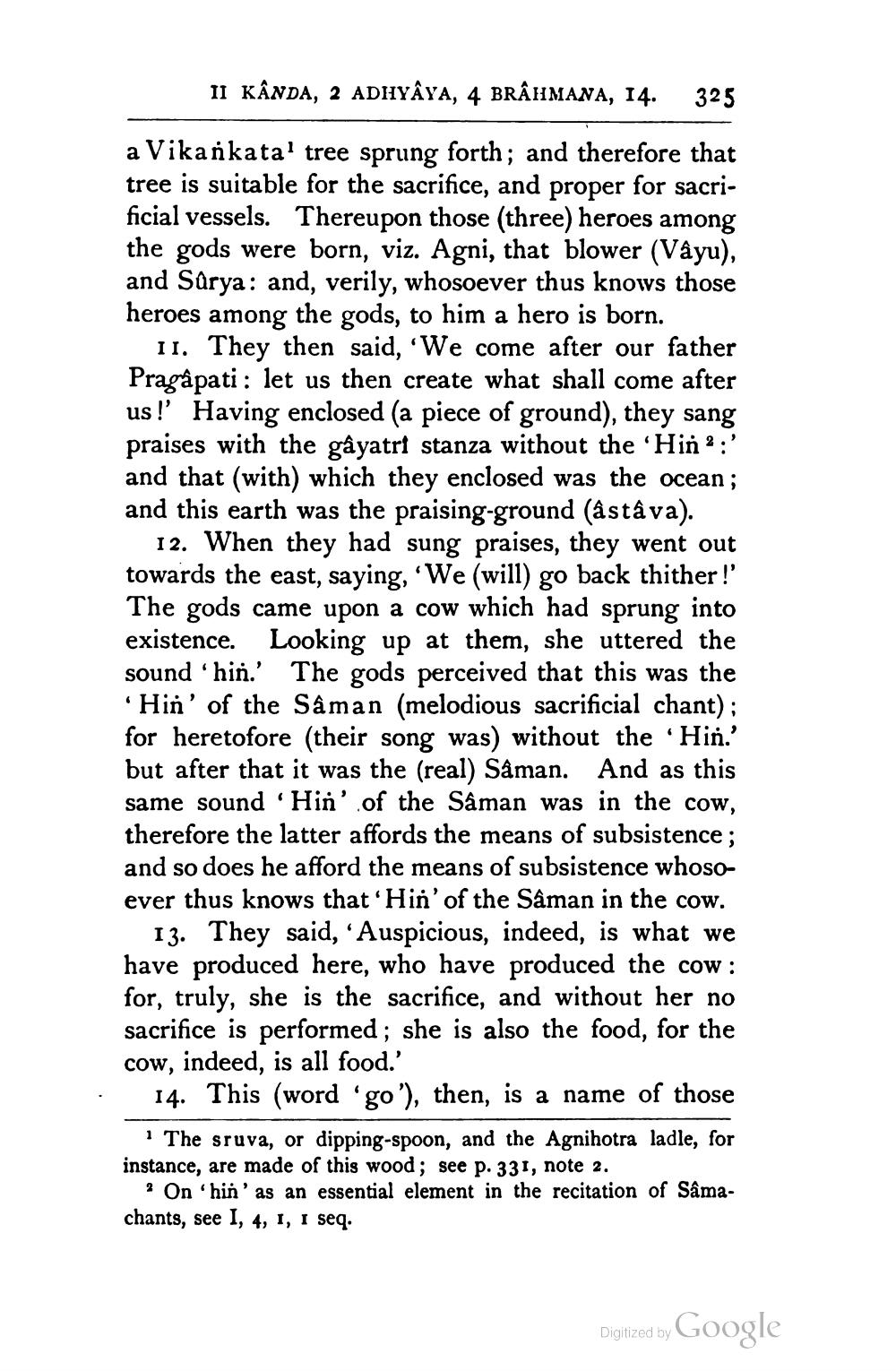________________
II KÂNDA, 2 ADHYAYA, 4 BRÂHMANA, 14.
325
a Vikan kata' tree sprung forth; and therefore that tree is suitable for the sacrifice, and proper for sacrificial vessels. Thereupon those (three) heroes among the gods were born, viz. Agni, that blower (Váyu), and Sarya: and, verily, whosoever thus knows those heroes among the gods, to him a hero is born.
11. They then said, 'We come after our father Pragâpati : let us then create what shall come after us!' Having enclosed (a piece of ground), they sang praises with the gayatri stanza without the ‘Hin? :' and that (with) which they enclosed was the ocean; and this earth was the praising-ground (âstâ va).
12. When they had sung praises, they went out towards the east, saying, 'We (will) go back thither!' The gods came upon a cow which had sprung into existence. Looking up at them, she uttered the sound 'hin.' The gods perceived that this was the
Hin' of the Saman (melodious sacrificial chant); for heretofore (their song was) without the 'Hin.' but after that it was the (real) Saman. And as this same sound 'Hin' of the Saman was in the cow, therefore the latter affords the means of subsistence; and so does he afford the means of subsistence whosoever thus knows that Hin' of the Sâman in the cow.
13. They said, 'Auspicious, indeed, is what we have produced here, who have produced the cow : for, truly, she is the sacrifice, and without her no sacrifice is performed; she is also the food, for the cow, indeed, is all food.
14. This (word 'go'), then, is a name of those
1 The sruva, or dipping-spoon, and the Agnihotra ladle, for instance, are made of this wood; see p. 331, note 2.
? On 'hin' as an essential element in the recitation of Sâmachants, see I, 4, I, I seq.
Digitized by Google




